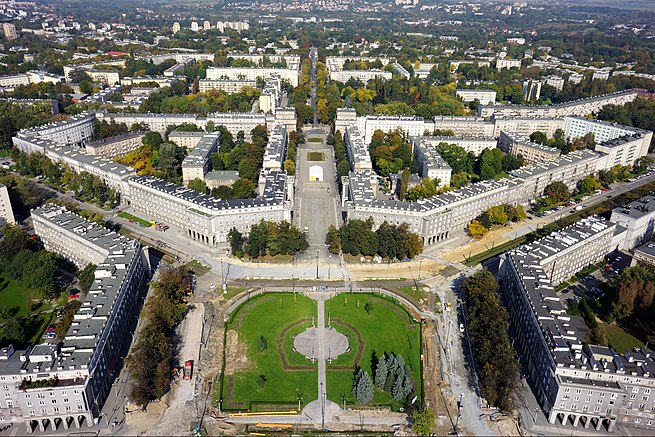
Main Difference
The main difference between Utopia and Dystopia is that the Utopia is a community or society possessing highly desirable or perfect qualities and Dystopia is a undesirable state of society
-
Utopia
A utopia ( yoo-TOH-pee-ə) is an imagined community or society that possesses highly desirable or nearly perfect qualities for its citizens. The opposite of a utopia is a dystopia. One could also say that utopia is a perfect “place” that has been designed so there are no problems.
Utopia focuses on equality in economics, government and justice, though by no means exclusively, with the method and structure of proposed implementation varying based on ideology. According to Lyman Tower Sargent “there are socialist, capitalist, monarchical, democratic, anarchist, ecological, feminist, patriarchal, egalitarian, hierarchical, racist, left-wing, right-wing, reformist, Naturism/Nude Christians, free love, nuclear family, extended family, gay, lesbian and many more utopias […] Utopianism, some argue, is essential for the improvement of the human condition. But if used wrongly, it becomes dangerous. Utopia has an inherent contradictory nature here.” Sargent argues that utopia’s nature is inherently contradictory, because societies are not homogenous and have desires which conflict and therefore cannot simultaneously be satisfied. If any two desires cannot be simultaneously satisfied, true utopia cannot be attained because in utopia all desires are satisfied.
The term utopia was coined from Greek by Sir Thomas More for his 1516 book Utopia, describing a fictional island society in the south Atlantic Ocean off the coast of South America.
The word comes from Greek: οὐ (“not”) and τόπος (“place”) and means “no-place” and strictly describes any non-existent society ‘described in considerable detail’. However, in standard usage, the word’s meaning has narrowed and now usually describes a non-existent society that is intended to be viewed as considerably better than contemporary society. Eutopia, derived from Greek εὖ (“good” or “well”) and τόπος (“place”), means “good place” and is strictly speaking the correct term to describe a positive utopia. In English, eutopia and utopia are homophonous, which may have given rise to the change in meaning.
-
Dystopia
A dystopia (from Ancient Greek δυσ- “bad” and τόπος “place”; alternatively, cacotopia, kakotopia, or simply anti-utopia) is a community or society that is undesirable or frightening. It is translated as “bad place” and is an antonym of utopia, a term that was coined by Sir Thomas More and figures as the title of his best known work, published 1516, a blueprint for an ideal society with minimal crime, violence and poverty.
Dystopias are often characterized by dehumanization, tyrannical governments, environmental disaster, or other characteristics associated with a cataclysmic decline in society. Dystopian societies appear in many fictional works and artistic representations particularly in stories set in the future. Some of the most famous examples are George Orwell’s Nineteen Eighty-Four, Aldous Huxley’s Brave New World and Ray Bradbury’s Fahrenheit 451. Dystopian societies appear in many sub-genres of fiction and are often used to draw attention to society, environment, politics, economics, religion, psychology, ethics, science or technology. Some authors use the term to refer to existing societies, many of which are or have been totalitarian states or societies in an advanced state of collapse.
Some scholars, such as Gregory Claeys and Lyman Tower Sargent, make certain distinctions between typical synonyms of dystopias. For example, Claeys and Sargent define literary dystopias as societies imagined as substantially worse than the society in which the author writes, whereas anti-utopias function as criticisms of attempts to implement various concepts of utopia.
In his Dystopia: A Natural History (Oxford University Press, 2017) Claeys offers a more nuanced and historical approach to these definitions. Here the tradition is traced from early reactions to the French Revolution. Its commonly anti-collectivist character is stressed, and the addition of other themes (the dangers of science and technology, of social inequality, of corporate dictatorship, of nuclear war) are also traced.
-
Utopia (noun)
A world in which everything and everyone works in perfect harmony.
-
Dystopia (noun)
A vision of a future that is a corrupted (usually beyond recognition) utopian society.
“2014 December 11, Megan Willett, “[http://uk.businessinsider.com/reddit-most-disappointing-travel-places-2014-12 The 16 Most Disappointing Places To Visit On Earth]”, Business Insider UK:”
-
Dystopia (noun)
A miserable, dysfunctional state or society that has a very poor standard of living.
-
Dystopia (noun)
Anatomical tissue that is not found in its usual place.
“The patient suffers from adrenal dystopia.”
-
Utopia (noun)
an imagined place or state of things in which everything is perfect
“a romantic vision of Utopia”
“misplaced faith in political utopias has led to ruin”
